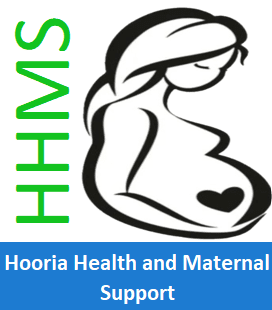How Cultural Foods Support Postpartum Recovery

Posted on October 20th, 2025
Introduction: Food as the First Medicine
When a mother gives birth, her body speaks a new language, one that asks for warmth, rest, and nourishment. Around the world, the answer to that call is found in the kitchen.
At Hooria Health and Maternal Support, we believe postpartum meals are more than nutrition. They are stories, recipes passed down through mothers’ hands, simmered with love and memory.
Healing after childbirth begins with food that comforts, strengthens, and reconnects us to who we are.
The Aroma of Healing
Picture this: A pot of spiced broth is bubbling slowly on the stove. The air was thick with the scent of cardamom, garlic, and ginger. A mother resting nearby, her eyes closed, her body slowly remembering how to feel safe again.
This is what healing smells like.
In Somali homes, women prepare maraq, a fragrant soup made with meat, vegetables, and warming spices. In Chinese tradition, ginger chicken soup restores balance and warmth to the body. In Mexico, caldo de papa is served with lime, rice, and herbs, a comforting reminder that food and love are inseparable.
Across languages and continents, the message is the same: healing begins with warmth.
The Wisdom Behind Warm Foods
Modern nutrition science now echoes what traditional healers have known for centuries. Warm foods improve circulation, aid digestion, and help the uterus contract after birth. They also soothe inflammation and support milk production.
That’s why so many postpartum meals focus on:
• Soups and stews: Easy to digest, hydrating, and nutrient-rich.
• Root vegetables: Grounding and gentle on the stomach.
• Whole grains: Restoring steady energy.
• Herbs and spices: Like turmeric, cumin, and fenugreek, which reduce inflammation and support recovery.
Cold or raw foods, often avoided in many cultural traditions, can slow digestion and chill the body, a subtle reminder that warmth is both physical and emotional.
A Shared Table, A Shared Tradition
When mothers are surrounded by the aroma of home-cooked meals, something deeper happens: the mind begins to heal alongside the body.
Aunties arrive with pots wrapped in towels, neighbors bring tea, and laughter fills the kitchen. These acts of service remind the mother that she is not alone, that her healing is a community priority.
At Hooria Health and Maternal Support, we see food as the center of community postpartum care. We encourage families to cook together, share traditional recipes, and create rotating meal trains so the new mother can rest while staying nourished.
Because love served on a plate feeds more than the body, it feeds belonging.
Bridging Old Traditions and New Lives
For mothers living far from their homelands, postpartum recovery can feel lonely. Ingredients may be hard to find, or family members may be oceans away.
We help mothers reimagine their cultural recipes with what’s locally available, honoring the spirit of tradition, even if the spices are different. Healing doesn’t depend on perfect ingredients. It depends on intention.
Even a simple bowl of lentil soup or spiced oatmeal can carry the same message: you are cared for, you are worthy of warmth.
A Doula’s Reflection
One Hooria doula recalls visiting a mother from Eritrea who missed her mother’s shiro, a chickpea stew she hadn’t tasted since leaving home. So they made it together. The mother stirred the pot slowly, smiling for the first time since delivery.
“This tastes like her,” she whispered.
Sometimes, the most powerful act of postpartum healing is recreating the flavors of love that first taught us how to be nurtured.
Final Thoughts: Nourishment as Connection
Every culture carries its own wisdom about how to feed a mother back to strength. These foods aren’t just about recovery, they’re about identity, memory, and love made tangible.
At Hooria Health and Maternal Support, we help families honor these traditions, offering culturally responsive postpartum support that celebrates nourishment in every form, physical, emotional, and spiritual.
Contact Hooria Health and Maternal Support today to start a conversation about postpartum nourishment and culturally grounded care.
Contact Us
Reach Out Today
Explore our caring maternal health solutions designed for you. Connect with our team today and begin a journey towards empowerment and support for you and your family.
